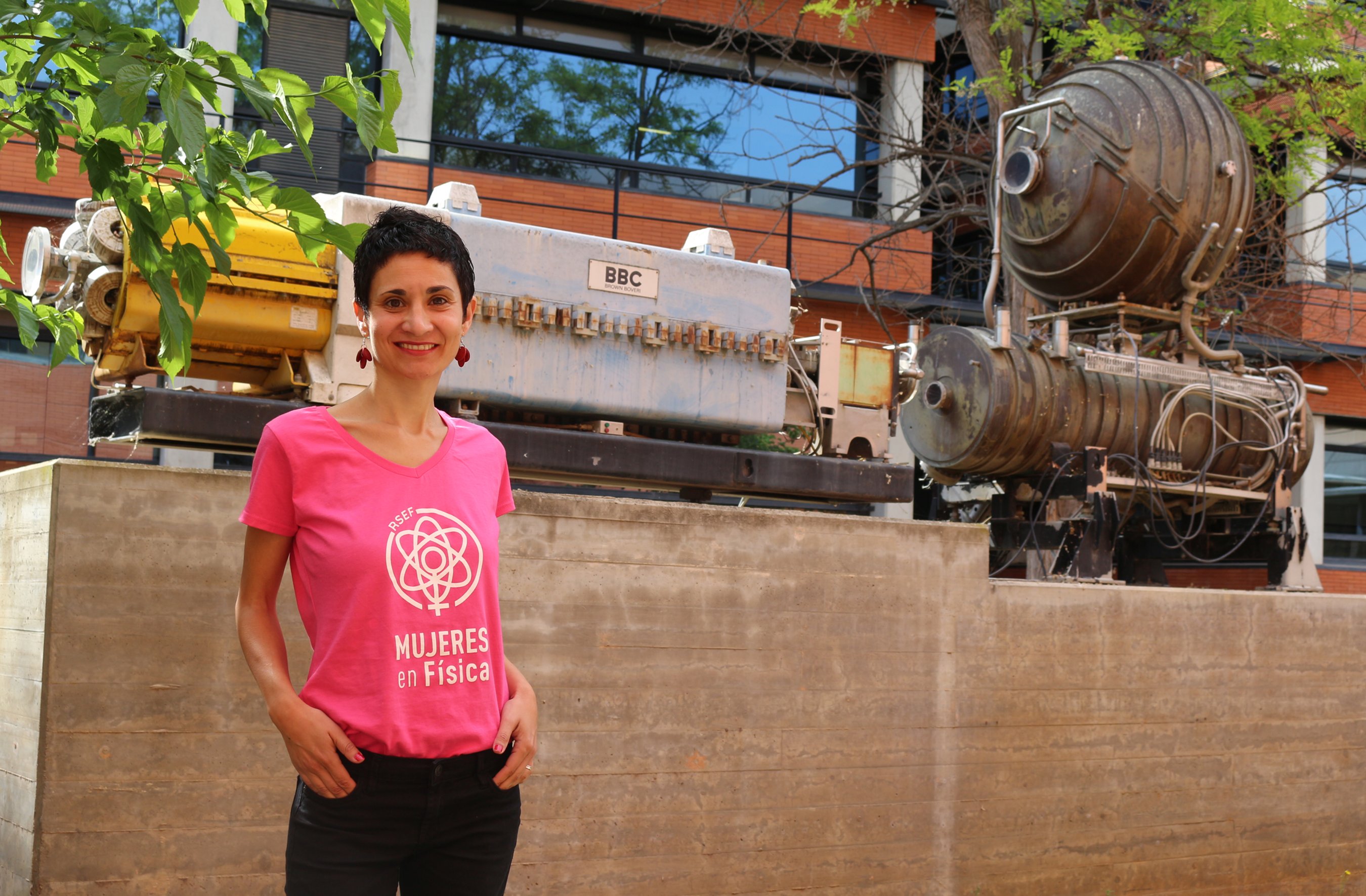A research of the scientist of the Institute of Corpuscular Physics (IFIC), located at the University of Valencia Science Park, María Moreno Llácer has been awarded by the L'Oréal-UNESCO 'For Women in Science' program, which recognizes the most cutting-edge work of five national researchers under 40 years old. The awards, which this year have focused on the fields of Physical-Mathematical Sciences, Technology and Engineering, are endowed with 15,000 euros and aim to support these research works and make visible female leadership in the scientific field in our country
A native of Valencia, Moreno Llácer has been recognized for her research 'Concept and origin of mass in the universe, why are we made of matter and not antimatter', which seeks to study in detail the interactions of the heaviest known fundamental particle, the top quark, with the Higgs boson. In the words of the laureate herself, “something happened at the beginning of the universe, just after the Big Bang, that caused the initial matter-antimatter symmetry to break somehow, and matter (electrons, protons, neutrons) ended up completely dominating the content of the universe”. Thus, the aim of the work of Moreno Llácer and his team is to understand the reason for the absence of antimatter in the universe.
The research has been chosen by a prestigious jury made up of eminent scientific experts in the areas covered in this edition: María A. Blasco, director of the Spanish National Cancer Research Center (CNIO); Pilar López Sancho, research professor in the Department of Materials Theory and Simulation at the Madrid Institute of Materials Science of the CSIC; Nuria Oliver, co-founder and director of the ELLIS Alicante Foundation, and Mateo Valero, director of the Barcelona Supercomputing Center (Centro Nacional de Supercomputación).
IFIC researcher and lecturer at the Department of Atomic, Molecular and Nuclear Physics of the UV
María Moreno is a researcher at the Institute of Corpuscular Physics (IFIC), a center located in the University of Valencia Science Park (PCUV), and a lecturer in the Department of Atomic, Molecular and Nuclear Physics at the UV. The laureate is dedicated to experimental particle physics and works on one of the world's largest experiments, ATLAS, at the Large Hadron Collider at CERN (Switzerland).
Among his numerous scientific achievements, the discovery, together with his collaborators, of the Higgs boson in the ATLAS experiment in 2012 stands out. This project was awarded the 2013 Prince of Asturias Award for Technical and Scientific Research and the European Physical Society Award. This award, therefore, is for her “a recognition of my research career that will undoubtedly be very useful when applying for new contracts and research projects”.
With respect to the presence of women in the scientific field, the researcher highlights family reconciliation as one of the great challenges faced by women in science: “Fortunately, this situation is changing and daily tasks are shared more equally. However, sometimes, and especially women scientists, end up slowing down in their scientific careers, attendance at international conferences or research stays. Promoting childcare centers in research centers (or nearby), even at conferences, would help a lot in conciliation. I think there is still a lot to be done here. She also concludes that the lack of female representation in science could be due to the fact that girls mistakenly see STEM careers as something “very difficult” and “that they would not be good at it”.
Female scientific leadership
Created in 1998 and present in more than 110 countries, the L'Oréal-UNESCO For Women in Science program has since its inception recognized more than 4,100 women scientists, such as Spain's Margarita Salas and Ángela Nieto, as well as Nobel Prize winners. Alternating every two years between Life Sciences and Materials Sciences, these exceptional women researchers, selected by a jury of internationally renowned experts, are awarded prizes to fund their research, enabling them to continue to make an exceptional contribution to the progress of science.
The national version of these awards, with which L'Oréal and UNESCO highlight the research of five women scientists in Spain under the age of 40, has boosted the careers of more than 87 women researchers, who have received grants worth more than 1.3 million euros.
In the media


